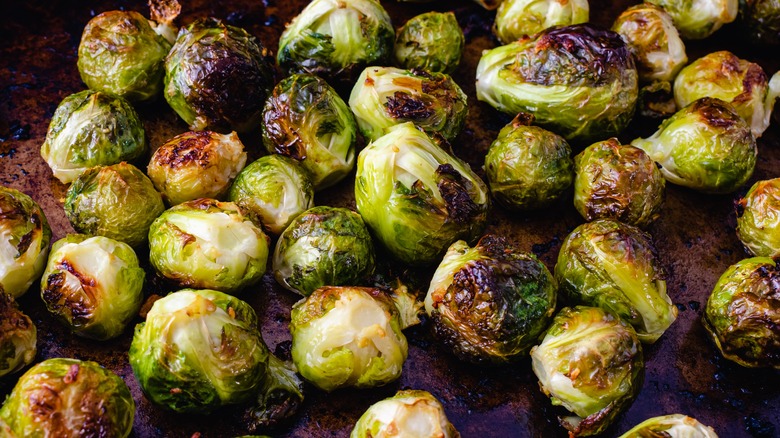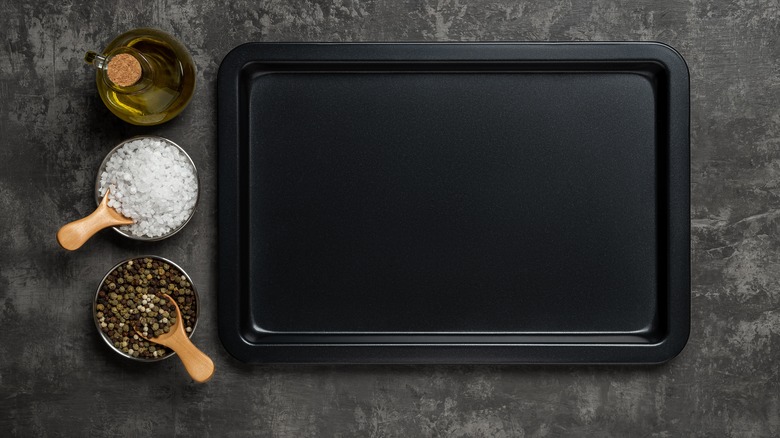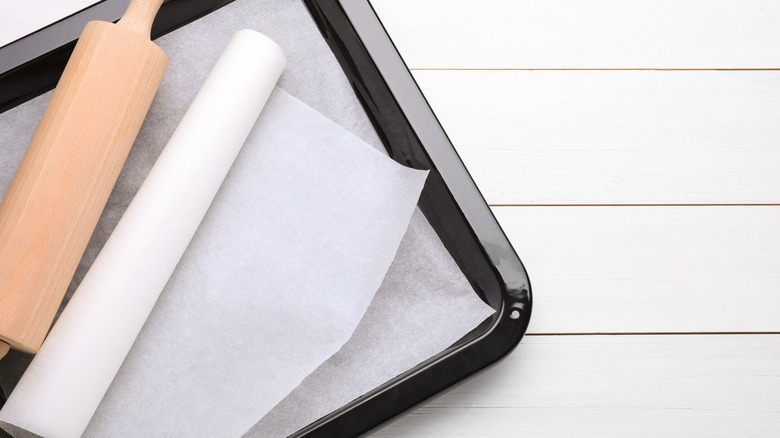Skip The Aluminum Foil For Browned, Caramelized Vegetables
Ripping off a sheet of aluminum foil and laying it on a sheet pan has now become a routine part of roasting vegetables for many home cooks. What once started as a quick tip for reducing mess in the kitchen has now turned into a constant habit. But, how many times have you roasted vegetables on a foil-lined sheet pan only to find the oils leaked anyway? Or worse, your vegetables came out cooked, but not a deep brown color like you hoped?
For the best roasted veggie caramelization, you're going to have to learn to live without aluminum foil. Just as you wouldn't want to line a grill with the material before grilling a steak, you also want to avoid this step if you want the crispiest roast vegetables. After all, that desired caramelization, also known as the Maillard reaction, is activated because of the very contact between the food and the cookware. When you add in aluminum foil, you're cutting off this vital step with a barrier, increasing the amount of time it takes for the veggies to brown.
Why a messy unlined sheet pan is your friend
Ditching the aluminum foil will help to deeply caramelize your veggies, while also making your pan a little messier. But, that's a good thing! Just as a tried and true and well-seasoned cast iron pan creates a magical non-stick, high-quality piece of cookware, so too does a well-seasoned sheet pan.
With cast irons, this layer is called a patina. When you roast your veggies with a coating of olive oil on an unlined sheet pan, you're creating a lovely layer of cooked oil on the surface that helps brown your vegetables more easily. So don't agonize over those patchy brown marks after you've already cleaned the pan once. The pan isn't stained or dirty, it's actually becoming more non-stick over time.
Besides, when have you used aluminum foil for your sheet pan only to still have to wrestle the vegetables from the foil because one under-oiled broccoli floret got stuck to the foil anyway? Simply giving your vegetables a nice coating of olive oil before popping the pan into the oven is enough to make sure they don't stick.
What about parchment paper?
If you just can't bear the thought of having to scrub at your sheet pan after roasting, you may be wondering if you can use parchment paper instead of aluminum foil. Parchment paper boasts similar benefits like easy cleanup and non-stick abilities, but the same problems still stand. With parchment paper, your vegetables still won't brown as easily. Furthermore, parchment paper hinders the evaporation of excess moisture in your vegetables. So, you could end up with wet, soggy cooked vegetables instead of golden, crispy brown ones.
Additionally, parchment paper can't tolerate heat above 450 degrees Fahrenheit, as it will start to burn. So forget giving those veggies a quick finish under the broiler if you're using this material. At the end of the day, it still acts as a barrier between the pan and the vegetables, making roasting more difficult. You'll get the best results by leaving the sheet pan unlined. So, try ditching the aluminum foil and any other lining next time you try out a sheet pan dinner recipe, and thank us later.


